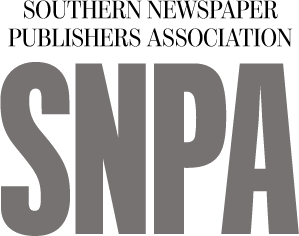Getting ready for the new FLSA overtime rule
On May 18, the U.S. Department of Labor finalized its proposed rule to increase the salary threshold necessary to be classified as exempt from overtime. When the final rule becomes effective on Dec. 1, 2016, the salary threshold will increase from $23,660 to $47,476 per year. Non-discretionary bonuses and commissions may count toward as much as 10 percent of the salary threshold. Every three years, the salary threshold will increase.
The final rule represents a slight downward revision from the proposed rule, which aimed to increase the salary threshold to $50,440 per year.
Though the final rule still may be challenged, every employer must be developing a plan now to address this huge budgetary issue. This writer suggests the following:
1. Identify all employees currently classified as salaried exempt, but paid less than $47,476 per year (or $913 per week). Every employer will need to make a decision regarding whether to reclassify these individuals as non-exempt under the new rule or increase their salaries to $47,476. If you have employees whose duties have changed or who have possibly been misclassified as exempt, now is a good time to reclassify them. You can blame the reclassification on the rule change.
2. Develop a new compensation plan. If your company chooses to reclassify the employees as non-exempt, consider tracking their hours to determine just how many hours per week they currently work. Will post-conversion pay and working hours replicate an employee's current situation, or will you need to restrict schedules at or near 40 hours? Will you need to reassign certain tasks to other employees?
Consider a cost-neutral solution, under which you set the employee's hourly rate at a level that assumes a certain amount of overtime, resulting in the same annual compensation currently earned by that employee.
3. Train the reclassified employees. These employees will have to be trained on timekeeping procedures at your company. They have not been accustomed to tracking their time. Now, it will be crucial legally that they do so. Be sure to explain to these newly reclassified employees about your policies concerning unauthorized overtime work, meal and rest breaks, and the use of mobile devices after working hours.
4. Carefully consider the consequences of your actions. If you convert a current salaried manager to an hourly employee, what is the psychological impact? Will he/she identify more with non-supervisory employees and quit thinking like a manager?
For example, one circulation manager for a small newspaper has already been converted from salary to hourly in anticipation of the new rule. This manager described the change as "devastating." The manager no longer feels part of the management team. Following the change, the manager was not permitted to attend a community event because it would have resulted in overtime; in years past, this manager always attended this community event, representing the newspaper and selling it. This manager feels "in limbo."
Another possible consequence is a change in benefits by moving from exempt to non-exempt.
Do not forget about the discrimination laws. For example, a plan that increased the current male managers' salaries but converted a female manager to hourly would draw fire as discriminatory.
If you take a supervisor who is now salaried exempt and reclassify him or her as a non-exempt employee, it will also adversely impact you at the National Labor Relations Board. When litigating whether one is or is not a supervisor for purposes of the labor law, if the person is hourly and eligible for overtime, that is a factor indicating employee/non-supervisory status.
5. Develop a communication strategy now. Chances are good that many of your current salaried employees have anxiety about whether they are going to get a pay increase or get reclassified as hourly employees. A good communication plan identifies who will deliver the news to the employees, and when the news will be delivered. Also give consideration to the format for delivering your plan. Will you use e-mail, one-on-one meetings, video presentations? To ensure a consistent message, develop talking points and FAQs for your management team.
Expect proposals in Congress, under the Congressional Review Act, to nullify the final rule. Additionally, due to the extensive change, this writer predicts legal challenges will be filed to enjoin the rule as administrative overreach under the Administrative Procedure Act.
DOL 'Persuader Rule' violates attorney-client privilege
In late March 2016, the U.S. Department of Labor issued its final rule reinterpreting and dramatically expanding its Persuader Rule. The law has long required employers to report any actions, conduct or communications that are in any way undertaken by management consultants that "directly" affect an employee's decision regarding representation or collective bargaining rights.
The rule has had a longstanding exemption for communications from an employer's attorney. As long as the attorney did not communicate directly with employees, employers and their attorneys did not have to file financial reports with the DOL. However, this new final rule requires employers and their outside law firms to file a report any time the attorney provides guidance to the employer, without speaking or otherwise directly communicating with employees – with no exemptions for communications from an employer's attorney.
The American Bar Association has formally opposed the rule, expressing the belief that it interferes with the attorney-client relationship by maintaining the release and disclosure of information long understood to be protected by the attorney-client privilege.
The DOL's final rule took effect on April 25. It applies to all arrangements, agreements and payments made on or after July 1, 2016.
As this column goes to press, the following groups have filed lawsuits to stop the final tule: National Federation of Independent Business et al.; Associated Builders and Contractors of Arkansas et al.; and Labnet Inc., d/b/a WORKLAW@NETWORK et al.
Additionally, on April 15, House Joint Resolution 87 was introduced into the House of Representatives. This Joint Resolution states that "Congress disapproves of the Rule submitted by the Department of Labor relating to interpretation of the advice exemption in the Labor Management Relations Act ... and such Rule shall have no force or effect."
It is expected that this resolution will pass both Houses of Congress and will be sent to the president for signature. This writer's prediction is that President Obama will veto the resolution.
 |
L. Michael Zinser is the founding partner of The Zinser Law Firm in Nashville, Tenn. The firm, which has a heavy concentration of clients in communications media, represents management in the area of labor and employment. Zinser can be reached at (615) 244-9700 or mzinser@zinserlaw.com.






